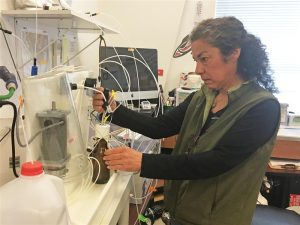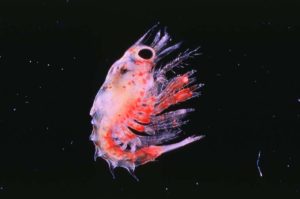With a research award from Georgia Sea Grant, scientists at Georgia Southern University are conducting a series of laboratory experiments to assess the effects of ocean acidification (OA) on ecologically important benthic invertebrates and algae that encrust hard bottom reefs of the South atlantic Bight (SAB). The first aim of this study is to conduct OA sensitivity experiments on ten different species common on SAB reefs. The second is to characterize the response of these species under more realistic conditions.
Research results indicate that Oculina Arbuscula, a dominant hard coral species at Gray’s Reef National Marine Sanctuary (GRNMS), is extremely resilient to elevated CO2 showing no statistically significant differences between high and low CO2 in any of the parameters. These results corroborate those of previous published works demonstrating that growth rates of O. Arbuscula were not affected by CO2 until extremely high concentrations, but it was surprising to find that physiological parameters were not affected either. Research results also indicate that increasing temperatures and decreasing pH, a likely scenario in the future with climate change, act synergistically to reduce calcification rates in O. Arbuscula. Conclusions reached from OA studies are already informing resource management efforts conducted by staff at GRNMS and the Georgia Department of Natural Resources.


